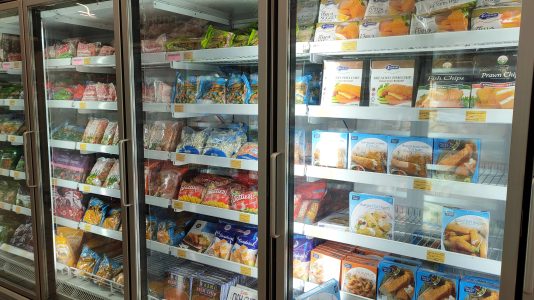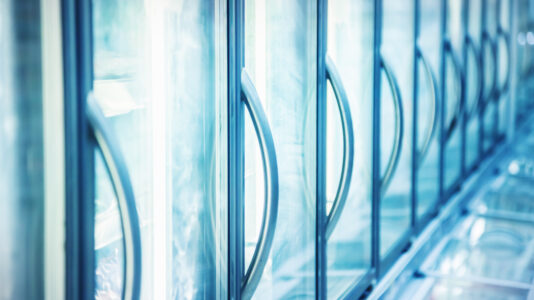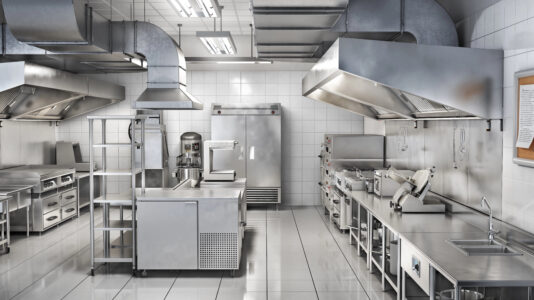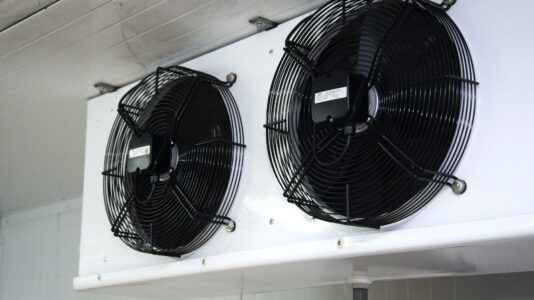Common Mistakes That Reduce the Efficiency of Your Commercial Refrigeration
May 3rd, 2025
Commercial refrigeration systems are essential for ensuring product quality and maintaining optimal temperatures in food establishments, restaurants, grocery stores, and other businesses. However, simple, avoidable mistakes often affect the efficiency of these systems, leading to additional costs. In this article, we will review common mistakes that can reduce the effectiveness of your commercial refrigeration and provide tips for avoiding these issues.
- Poor Temperature Management
One of the most common mistakes is failing to maintain the recommended temperatures for stored products. Too high or too low a temperature can lead to food safety issues, increased energy consumption, and shorten the system’s lifespan. For example, temperatures that are too low can cause excess freezing in the freezer, while temperatures that are too high can lead to rapid spoilage of products.
To avoid this, ensure that thermostats are correctly set according to the manufacturer’s recommendations for the products being stored and regularly check temperatures with a thermometer to ensure compliance.
- Insufficient Maintenance of Filters and Coils
The filters and coils in your refrigeration systems are crucial for their proper operation. Dust, grease, and debris can accumulate and block airflow, reducing the efficiency of heat exchangers. This forces the system to work harder to reach the desired temperature, resulting in higher energy consumption and premature wear on components.
To avoid this mistake, it’s essential to regularly clean the filters and coils of your refrigeration units. Consider entrusting this task to a professional to ensure your system operates at maximum efficiency.
- Frequent Door Openings
Opening the doors of commercial refrigerators and freezers repeatedly is a common mistake, especially in fast-paced environments where employees are constantly moving. Every time the door is opened, warm air enters, causing the system to work harder to cool down again. This added workload can lead to significantly higher energy consumption and accelerate wear and tear on the system.
To minimize this error, train your staff to avoid unnecessary door openings and to close doors quickly after use. You can also install self-closing doors to reduce exposure to warm air.
- Overloading the Units
Another common mistake is overloading refrigeration units. When shelves or compartments are overfilled, air cannot circulate properly around the products, preventing uniform cooling. This can create warm spots inside the unit and force the system to work longer to maintain the desired temperature.
To avoid this mistake, ensure you do not exceed the storage capacity of the refrigerators and organize the products in a way that allows air to circulate freely around them. Leave enough space for the cold air to reach all products evenly.
- Ignoring Door Seals
Door seals play a crucial role in the energy efficiency of refrigeration systems. If the seals are damaged or worn out, warm air can enter, forcing the system to consume more energy to maintain the temperature. A faulty seal can also cause condensation, promoting mold growth that can affect the quality of stored products.
Regularly check the door seals and replace them if necessary. Even a small air leak can significantly impact long-term energy costs, so don’t delay fixing this issue.
- Ignoring Manufacturer Maintenance Guidelines
Each refrigeration system has specific maintenance requirements according to the manufacturer’s recommendations. Ignoring these guidelines or delaying scheduled maintenance can significantly reduce the efficiency of your commercial refrigeration. Manufacturers typically recommend periodic inspections, parts replacement, and refrigerant level checks.
Always follow the manufacturer’s maintenance instructions and schedule regular service to ensure the longevity and efficiency of your system. Preventive maintenance can help avoid many issues before they occur, saving you from costly repairs.
- Using Outdated Equipment
Using outdated refrigerators or freezers can also affect the energy efficiency of your refrigeration system. Older models are often less efficient and consume more energy to do the same work as newer models. Additionally, spare parts may be hard to find, and repairs may become more frequent and costly.
If your equipment is old or frequently breaking down, it may be time to consider replacing it. Investing in modern, energy-efficient refrigeration systems can save you money in the long run and improve the overall efficiency of your business.
Conclusion
Reducing the efficiency of your commercial refrigeration can have consequences on product quality and lead to higher operating costs. By avoiding these common mistakes and implementing a preventive maintenance plan, you can ensure the proper functioning of your equipment, save energy, and extend its lifespan. If you have questions or need professional services for your refrigeration systems in Gatineau, don’t hesitate to contact Frigotech for advice and services tailored to your needs.




